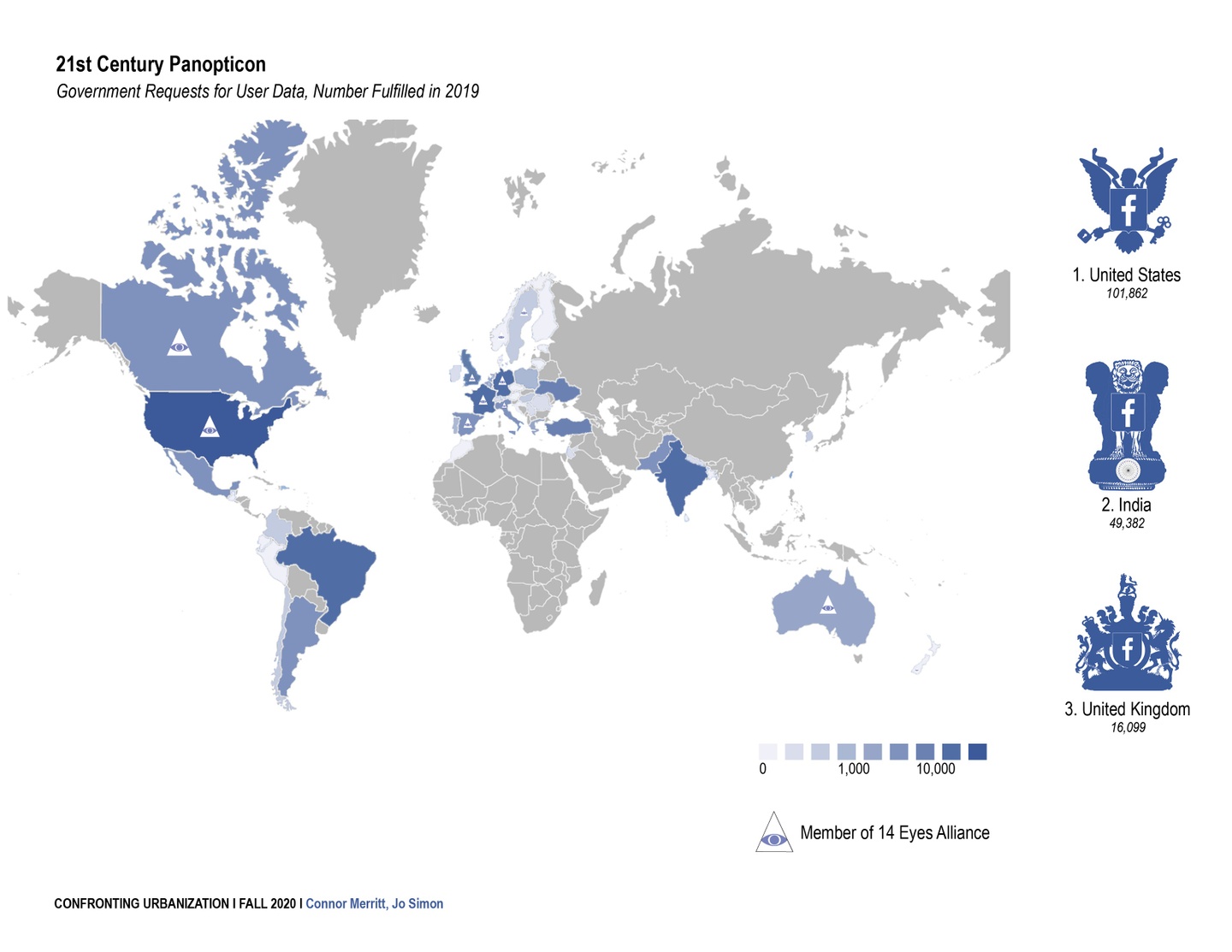Connor Merritt, Josephine Simon
What first began as a digital platform to connect college students, Facebook is now the world’s most influential social networking site. Although the nature of Facebook’s power is more subtle than that of the national government, they are both concentrated power structures that we are a part of whether we want to be or not. Facebook’s success depends on surveillance capitalism – the commodification of personal data. The organization and social structure of Facebook closely resembles the Panopticon prison model, in which individual prisoners are under constant surveillance via a central guard tower. Both the prisoners and Facebook users are being watched at all times, but do not realize it. Facebook tracks user data in order to more accurately target ads to individuals, and thus, make more money. The Facebooth confronts the corrupt and invasive practices of the government-like company. Pay phones have historically been used by people who did not want to be traced or tracked, so the Facebooth encourages people to remove themselves from the Facebook platform and engage in more meaningful conversation. Facebooths are strategically placed in public spaces within the city that are specifically designed for social interaction.


